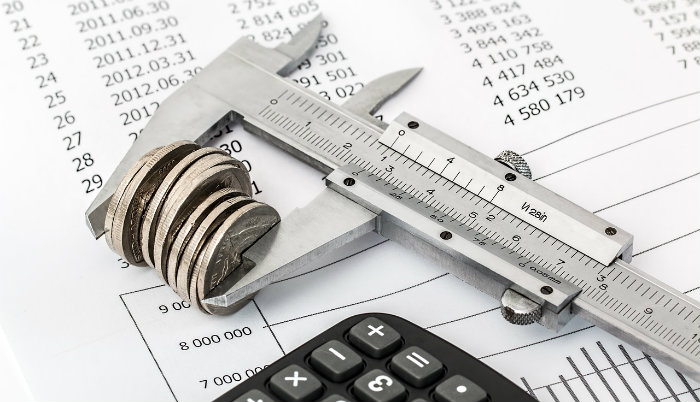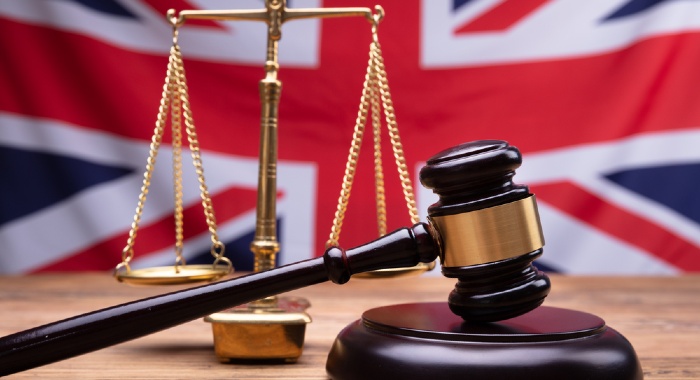When we are opposing estate agent vs chartered surveyor valuations, who comes out on top? They will both value your home, that much is clear.
When you need your home valued, you have two options: you can as an estate agent, or you can get a chartered property surveyor to value your property.
While they will both value your property, there is a big difference, which means it’s important to choose the right one for your situation. One of the biggest differences is that the chartered surveyor will cost several hundred pounds and the estate agent is generally free.
In this article we will use our own experience with the property world to help you with the dilemma: estate agent vs chartered surveyor valuations.
We’ve had both estate agents and Chartered Surveyor valuations done on properties we have sold and so this article is based on our experience.
Estate Agent’s Property Valuation

Let’s start off with agents. The objective of an estate agent when valuing your property is to convince you to put it on the market with them and not one of their competitors.
While each agent will charm you with tales of why they are best placed to do this, the value they put on your property is not always what they expect it to achieve.
In a slow market, such as the one we experienced in 2023, the majority of agents will market your property at a price point they know is ambitious, with the expectation that they will need to drop down in order to achieve a sale.
Your ‘report’, which may include some analysis of local sales but often takes the form of a letter, will typically say something along the lines of: “We recommend marketing your property at £400,000 with an expectation to achieve £380,000”. So, what is the actual value? £400,000 or £380,000?
Essentially, their valuation is a target or ‘guide’ price for how much your home ‘might’ sell for. Ultimately, your property is worth whatever people will pay for it, and that cannot be known until it’s on the market.
When we have sold our properties, we’ve always found that the estate agent valuations are pretty close to what the house ends up selling for. Our first home sold for bang on the price the estate agents valued it at, our second one sold for slightly less than the estate agent’s valuation.
Ignoring the fact that you may have to effectively lie to the agent, telling them that you are considering selling your property when you may have no such intention, there is no obligation on them to provide an accurate valuation and no comeback if their figure turns out to be incorrect.
This means that their valuation isn’t legally binding or even one that you can necessarily rely on.
Selling A Property? FREE Step-By-Step Platform
How Does A Chartered Surveyor’s Valuation Differ ?

So what do you get for a Chartered Surveyor’s valuation report that can typically cost around upwards of £400?
A Chartered Surveyor undertaking valuations is regulated by the Royal Institute of Chartered Surveyors (RICS) and must follow the guidance set out in the Red Book.
They also have to apply to become a chartered surveyor with the RICS, which means they need to qualify for the job via Assessment of Prefessional Competence (APC). That’s different from an estate agent, who can start without any prior experience and will learn on the job.
Because a surveyor is bound by the RICS’s membership, they have to work according to a certain standard and have to be qualified for the job. That’s why this type of report will be accepted by Solicitors, Courts, Housing Associations or Local Authorities.
They will be required to undertake a conflict of interest check to further ensure impartiality. The client will be issued with a detailed set of terms and conditions that clearly outline the scope of the instruction, so there is no ambiguity.
The inspection, whilst not a building survey, will thoroughly cover the property from top to bottom and take into account any defects that could affect the value.
Back at the office, the surveyor will have access to a vastly more detailed database and will be able to obtain confirmation of local under offer prices (estate agents can’t do this as they are competing against each other!).
Once you receive your report, you should be able to clearly see how the surveyor has arrived at their valuation and ask follow-up questions if needed.
In certain instances, such as Single Joint Expert or Expert Witness work, the surveyor can be asked to support his findings in Court, and if it all goes wrong, and they are found to have been negligent, you have a process that allows you to seek appropriate compensation.
One thing we found when using chartered surveyor valuations was that time and time again, the valuation comes out bang on the price that has been agreed between the vendor and the buyer.
So, our advice would be to avoid telling the surveyor anything about what other people have valued it at, or agreed to pay. This way you can be sure they are giving you their true opinion.
Estate Agent Vs Chartered Surveyor Valuations: The Situation Will Dictate Which One To Use
Now that we have discussed what each of the two valuations entail, let’s move on to help you decide how to get out of the dilemma of estate agent vs chartered surveyor valuations.
Which one is best for you depends on why you need a valuation in the first place. Broadly speaking, you can divide the purposes of a valuation into two categories:
- Legal – which means you need the value of your home for a legal or official process
- Non-legal – which means you need to know the value of your home for personal reasons
Legal Or Official Purposes

There are a huge variety of reasons why you need to know the value of your home; the majority will be for legal or official reasons.
Valuations can be undertaken to establish a tax liability, a grant of probate, to resolve a dispute in divorce proceedings, for accounting purposes or court proceedings, or to help with a mortgage valuation.
Other more bespoke scenarios include when an owner of a shared ownership property is looking to acquire further percentages of their flat (known as ‘
There are also occasions where a private transaction is taking place and each of the parties wishes to know the correct price to be paid for an asset.
Typically, Chartered Surveyor valuations are better when a valuation is required for legal purposes, because their reports will be accepted by courts, solicitors and other official bodies.
Non-legal Purposes
The most obvious non-legal purpose for knowing the value of your home is when you intend on selling it. While selling your home is a legal process, that’s only once you have accepted an offer and the conveyancing process starts.
The purpose of the valuation is to give you an idea of what price to set your home at. Of course, the more accurate the better, because it means that you will attract a buyer quicker.
However, at the end of the day, your property is worth as much or as little as someone is willing to pay for it. So there isn’t really a need to have a valuation by a RICS-qualified surveyor that costs a few hundred pounds.
So once the purpose of the valuation has been established, the next question is whether it would be appropriate or legal for an estate agent to value the property – and in the vast majority of instances, the answer will be an emphatic ‘no’.
In our experience, the only time when you would call an estate agent to value your house is when you are looking to sell it.
Conclusion – Estate Agent Vs Chartered Surveyor Valuations
There are many different reasons why you might need to get your property valued. And it’s important to choose the right person to do it.
Whether this is an estate agent or a chartered surveyor will depend on the purpose of the valuation. In most cases, it will be more appropriate to get a valuation report from a chartered surveyor, especially if it is needed for a legal or official process.
That’s because the aim of both valuation types are different. An estate agent is trying to get you to instruct them to sell your home. This means they might decide to value it a bit higher to persuade you that they are the best agent for you.
A chartered surveyor is only interested in providing the value of your property as accurately as possible. There is no reason for them to give a higher or lower value. After all, they can be liable if they give a wrong valuation.
To solve the dilemma of estate agent vs chartered surveyor valuations easily, we would give this rule of thumb: if you need the valuation for a legal or official purpose, go with a surveyor. If it’s for a non-legal or non-official purpose, an estate agent is probably enough.
However, we would say that in most cases, the only time you get an estate agent to valuate your property is if you are looking to sell it.





